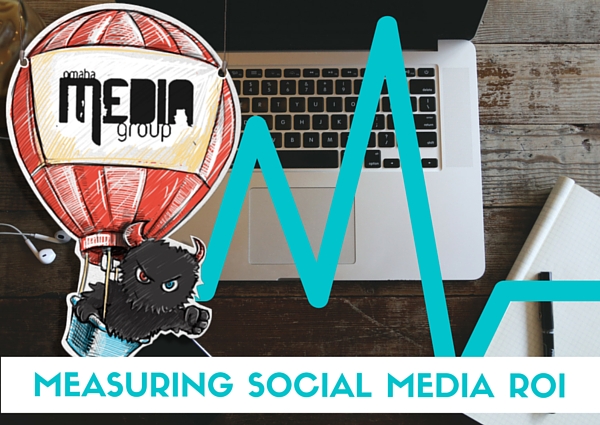 https://www.omahamediagroup.com/images/uploads/monster_gallery/Omaha-Media-Group-Black.jpg
admin
https://www.omahamediagroup.com/images/uploads/monster_gallery/Omaha-Media-Group-Black.jpg
admin
Measuring Social Media ROI

Social media marketing has become a norm for most brands today. However, most of them are at loss when asked about the returns yielded by their social media efforts. Even though we like to center your success when it comes to social media marketing around key performance indicators, or KPIs, today we'll take a look at how you can measure your social media ROI, or return on investment.
Why should you measure your ROI?
For businesses that are just trying out a social media marketing strategy for the first time, ROI is a key indicator on what is or isn’t working. On the other hand, it can help decision-makers take a call on how much should be invested in organic or paid social media marketing efforts. Of course, convincing senior management is not the only reason why you would want to measure ROI.
Measuring ROI can help you determine the efficiency of your social media efforts. Efforts do not necessarily have to yield conversions or leads to be counted as successful. Some forms of social media efforts do not yield tangible results, they are nevertheless necessary. A strong social media presence is great PR for your brand, and helps it stay in the customer visibility radar.
Many customers like to take up issues with brands on social media platforms, rather than their support email or phone number. In such cases, it pays off to resolve customer issues if you’re active on social media; else there’s a good chance that the issue escalates and gets out of hand.
How to measure ROI?
Social media efforts can yield different form of results. It could draw more traffic to your website or followers on your social media page. It may also encourage more people to register for your newsletter or boost your conversion rate.
To measure the ROI of your social media marketing efforts you want to set goals for each of them. It could be anything: increased outreach, leads, engagement, traffic, or a combination of these. These are also known as KPI's. You will also want to track your conversion rates.
The reason you want to set separate goals for each of your social media marketing efforts, rather than taking a blanket ROI measurement approach is because it helps evaluate the efficiency in a better way. For instance, you may want to drive engagement (an important KPI) with a Facebook giveaway contest, while a product launch social media campaign would be aimed at driving more conversion (an important ROI indicator) and publicity.
Once you have narrowed in on the metrics you want to target, you know the data that you should be tracking. Website traffic ROI can be measured by comparing the social media redirects against overall site traffic; this is probably going to be your number one ROI indicator. Engagement rates can be estimated by comparing likes, hits, shares and other social media interactions against the overall number of followers, while conversion rate can be measured by calculating the conversion numbers vs the site traffic numbers.
You also want to measure the cost versus gain on your social media efforts. Cost would include paid media, social media tools, training, labor, outsourcing to experts, and so on.
It is important to remember that it is a little trickier to calculate gains, as not every view or like that you get on social media platforms translate to conversions. Take a count of the views, traffic, registrations and other interactions, and then use previous analytical trends in conversion rates to gauge the returns.
Do you have questions on how to measure your ROI? Contact us today and visit with our social marketing experts! {contact-form}
Hire the team to help you with your website, app, or other marketing needs.
We have a team of digital marketers who can help plan and bring to life all your digital marketing strategies. They can help with social media marketing, email marketing, and digital advertising!
CONTACT US




Comments